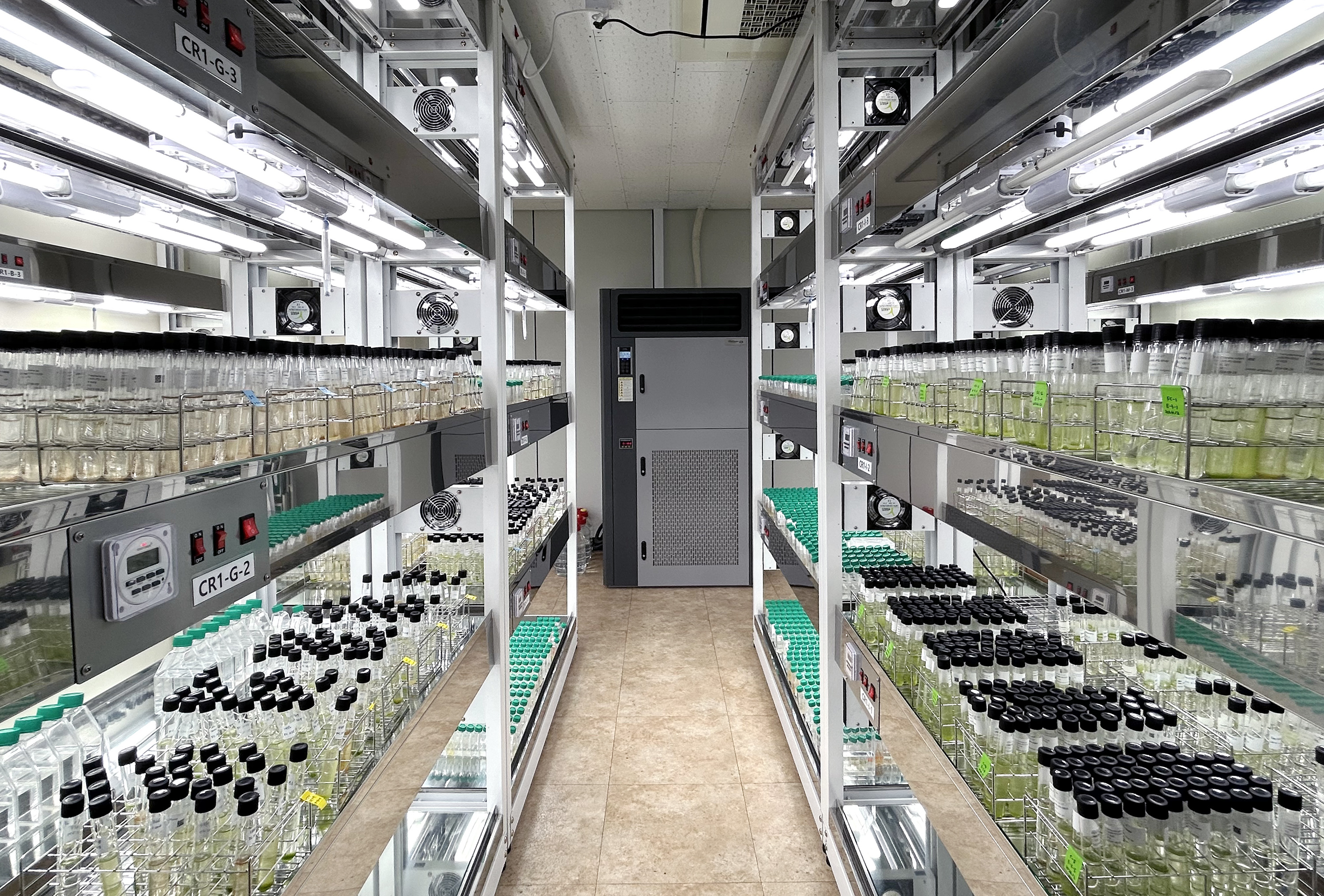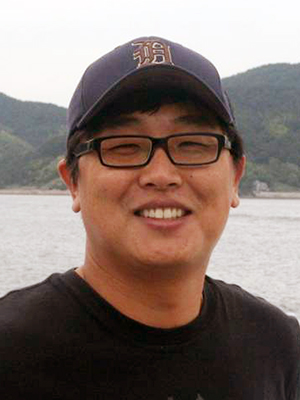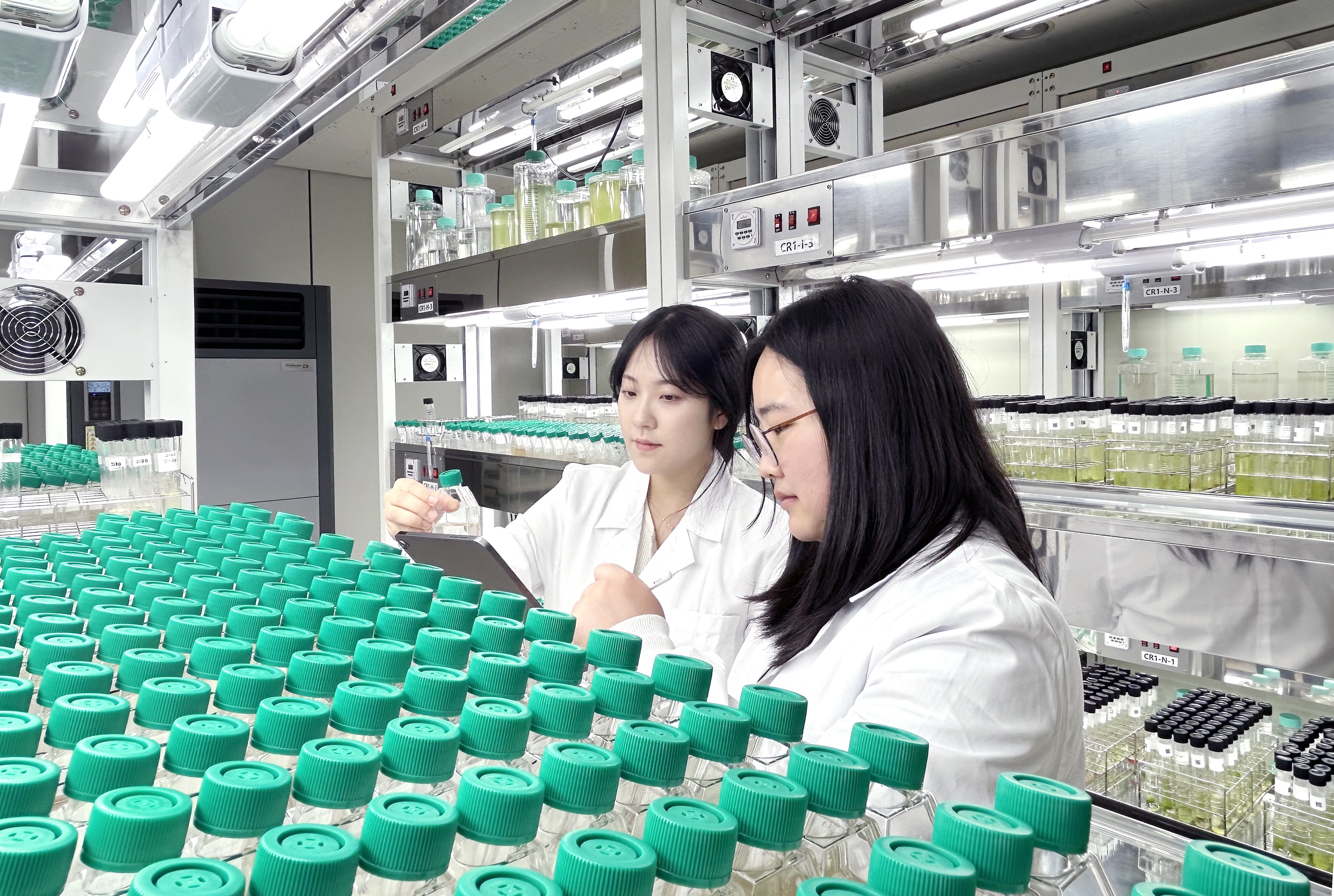커뮤니티
부경투데이
- 국립 부경대학교의 다양한 모습과 소식을 접하시면 부경대학교가 한번 더 가까워집니다.
| ‘해양미세조류은행’ 다시 국립부경대로(The ‘Marine Microalgae Bank’ Returns to Pukyong National University) | |||
| 작성자 | 대외홍보센터 | 작성일 | 2025-03-20 |
| 조회수 | 503 | ||
| ‘해양미세조류은행’ 다시 국립부경대로(The ‘Marine Microalgae Bank’ Returns to Pukyong National University) | |||||
 |
대외홍보센터 |  |
2025-03-20 |  |
503 |
국립부경대, 국내 유일 ‘해양미세조류은행’ 재운영한다
- ‘해양식물 플랑크톤자원 기탁등록보존기관’ 10년 만에 이전 운영

△ 해양식물 플랑크톤자원 기탁등록보존기관 배양실.
국립부경대학교(총장 배상훈)가 국내 유일 ‘해양미세조류은행’을 10년 만에 재운영하며 해양바이오산업 지원 기관으로서 입지 다지기에 나섰다.
 국립부경대는 한국해양과학기술원(KIOST)으로부터 ‘해양식물 플랑크톤자원 기탁등록보존기관(기관장 신현호 교수·사진)’을 이전, 3월부터 본격 운영에 나섰다고 밝혔다.
국립부경대는 한국해양과학기술원(KIOST)으로부터 ‘해양식물 플랑크톤자원 기탁등록보존기관(기관장 신현호 교수·사진)’을 이전, 3월부터 본격 운영에 나섰다고 밝혔다.
기탁등록보존기관은 해양수산부가 우리나라 해양생물자원 주권 확보를 위해 우수 연구기관을 지정하고 지원하는 사업이다.
해양식물 플랑크톤은 탄수화물, 지방질, 단백질 등 다양한 생리활성 물질로 구성돼 있고, 이산화탄소 고정 및 수질정화 능력도 있어 환경문제 해결, 바이오연료와 의약품 소재 생산 등 다양한 분야에 활용될 수 있는 귀중한 생명 자원이다.
국립부경대는 ‘해양식물 플랑크톤자원 기타등록보존기관’의 전신인 ‘해양미세조류은행’을 1995년부터 2015년까지 운영하며 연간 200회가량 국내외 연구기관, 산업체, 교육기관에 분양하는 등 국가연구개발사업 지원과 해양바이오산업 활성화에 이바지한 바 있다.
이후 운영 책임자의 은퇴로 해양 연구 전문 기관인 KIOST에 이전됐다가, 미세조류 분야 전문가인 신현호 교수가 지난해 국립부경대 양식응용생명과학전공에 신규 임용되면서 이전 작업을 추진해 이번에 재운영할 수 있게 됐다.
‘해양식물 플랑크톤자원 기탁등록보존기관’은 특수 배양실과 분석장비들을 갖추고 국립부경대 한미르관 7층에 조성됐다. 현재 500여 종(1,900여 개 배양주)의 해양식물 플랑크톤을 보유하고 있다.
신현호 교수는 “현재 국립해양생물자원관에서 운영하는 자원검색분양시스템(MBRIS)과 연계한 자원 검색시스템도 구축해 보안 검사를 거쳐 4월에 공개할 예정이다. 국내 연구자들이 쉽게 해양식물 플랑크톤자원을 제공 받아 연구하고, 관련 산업에 활용될 수 있도록 힘쓰겠다.”라고 밝혔다.
한편, 신현호 교수는 해양식물 플랑크톤 분류, 생리, 생태, 활용 연구의 전문가로 지난 10년간 SCI급 논문을 50편 이상 출판했다. 특히, 우리나라 해역에서 발견된 식물플랑크톤 신종에 우리나라 지명(제주도, 거문도, 통영, 군산 등)을 인용, 종명을 확정해 국내외 학계에 우리나라의 지역을 알리는 데 이바지하기도 했다. 지난해에는 해양생명자원유공 해수부장관상을 받았다.

Pukyong National University to Re-Operate the Only ‘Marine Microalgae Bank’ in Korea
- Resumes operation of the 'Marine Phytoplankton Resource Donation and Preservation Institution' after 10 years
Pukyong National University (President Bae Sang-hoon) has resumed the operation of the only 'Marine Microalgae Bank' in Korea after 10 years, strengthening its position as a supporting institution for the marine bioindustry.
Pukyong National University has taken over the "Marine Plant Plankton Resource Deposit and Preservation Agency" (Director Professor Shin Hyun-ho) from the Korea Institute of Ocean Science and Technology (KIOST) and has begun full operations as of March.
The Deposit and Preservation Agency is a project designated and supported by the Ministry of Oceans and Fisheries to secure Korea's sovereignty over marine biological resources by designating excellent research institutions.
Marine plant plankton is composed of various bioactive substances, including carbohydrates, lipids, and proteins. It also has the ability to fix carbon dioxide and purify water, making it a valuable biological resource that can be used in environmental problem-solving, biofuel production, and pharmaceutical material production, among other areas.
Pukyong National University previously operated the "Marine Phytoplankton Bank," the predecessor of the "Marine Plant Plankton Resource Deposit and Preservation Agency," from 1995 to 2015. During that time, it distributed resources to domestic and international research institutions, industries, and educational organizations about 200 times a year, contributing to national research and development projects and the revitalization of the marine bioindustry.
After the retirement of the operating head, the agency was transferred to the Korea Institute of Ocean Science and Technology (KIOST), a marine research institution. However, with the appointment of Professor Shin Hyun-ho, an expert in microalgae, to the Department of Aquatic Applied Life Science at Pukyong National University last year, the relocation process was initiated, allowing the agency to be re-operated.
The "Marine Plant Plankton Resource Deposit and Preservation Agency" is equipped with specialized culture rooms and analytical equipment and is located on the 7th floor of Hanmir Hall at Pukyong National University. Currently, it holds around 500 species (with approximately 1,900 culture stocks) of marine plant plankton.
Professor Shin Hyun-ho stated, "We are also establishing a resource search system linked with the resource search and distribution system (MBRIS) operated by the National Marine Biological Resource Center, which will be made public after security checks in April. We will work hard to ensure that domestic researchers can easily access marine plant plankton resources for their studies and that these resources can be applied to related industries."
Meanwhile, Professor Shin Hyun-ho is an expert in the classification, physiology, ecology, and application of marine plant plankton and has published over 50 SCI-level papers over the past decade. Notably, he contributed to the recognition of new plant plankton species discovered in Korean waters by naming them after locations in Korea (such as Jeju Island, Geomun Island, Tongyeong, and Gunsan), thus promoting the recognition of these regions in domestic and international academic circles. Last year, he was awarded the Minister of Oceans and Fisheries Award for Marine Biological Resources. <Pukyong Today>